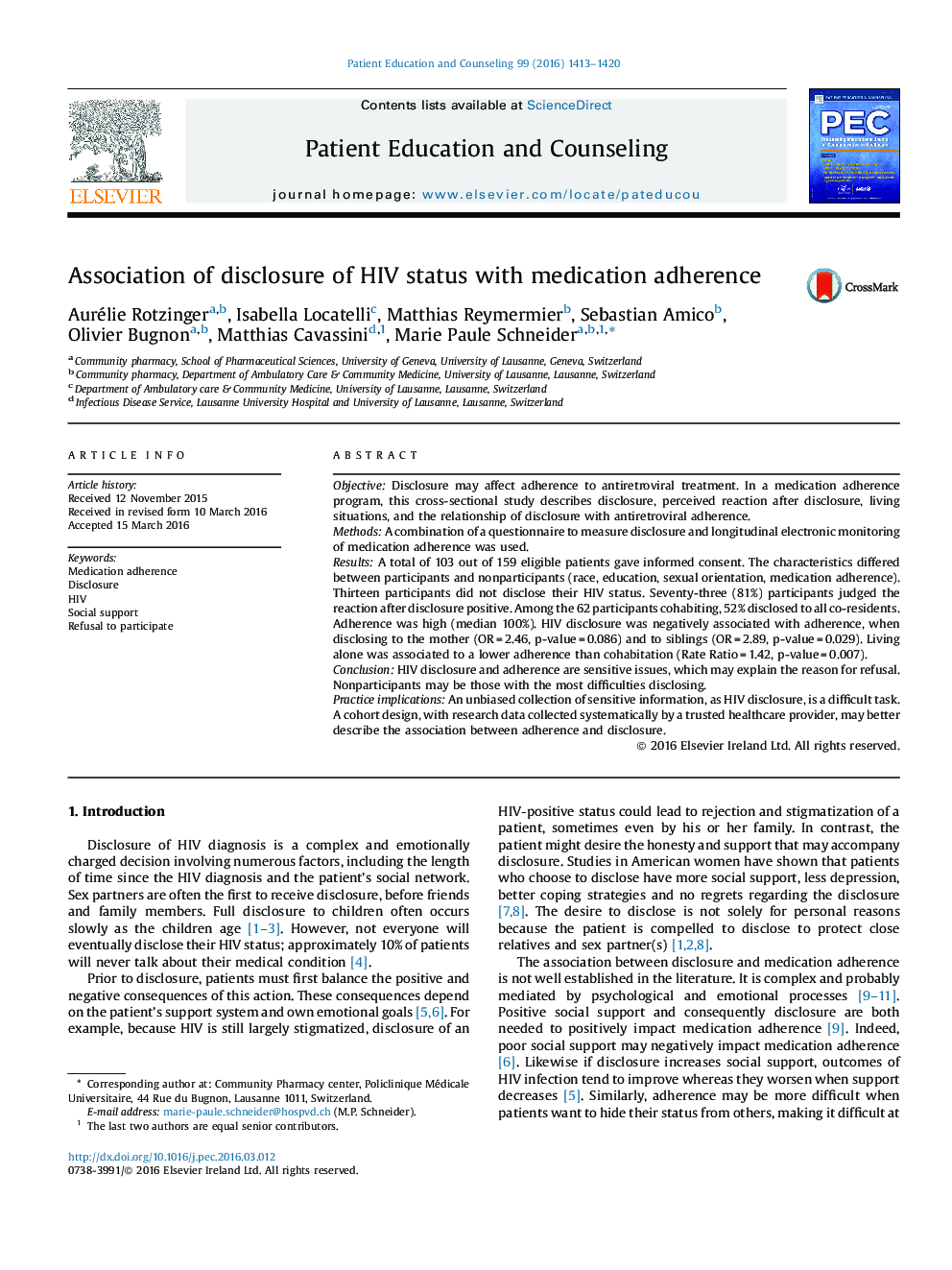| Article ID | Journal | Published Year | Pages | File Type |
|---|---|---|---|---|
| 6153987 | Patient Education and Counseling | 2016 | 8 Pages |
•The majority of participants disclosed to their stable sexual partner.•The majority of participants perceived disclosure as positive.•Among participants living with other people, 55% disclosed to all co-residents.•Most associations between HIV disclosure and adherence were non-significant.•Nonparticipants, who refused the study, were different from participants.
ObjectiveDisclosure may affect adherence to antiretroviral treatment. In a medication adherence program, this cross-sectional study describes disclosure, perceived reaction after disclosure, living situations, and the relationship of disclosure with antiretroviral adherence.MethodsA combination of a questionnaire to measure disclosure and longitudinal electronic monitoring of medication adherence was used.ResultsA total of 103 out of 159 eligible patients gave informed consent. The characteristics differed between participants and nonparticipants (race, education, sexual orientation, medication adherence). Thirteen participants did not disclose their HIV status. Seventy-three (81%) participants judged the reaction after disclosure positive. Among the 62 participants cohabiting, 52% disclosed to all co-residents. Adherence was high (median 100%). HIV disclosure was negatively associated with adherence, when disclosing to the mother (OR = 2.46, p-value = 0.086) and to siblings (OR = 2.89, p-value = 0.029). Living alone was associated to a lower adherence than cohabitation (Rate Ratio = 1.42, p-value = 0.007).ConclusionHIV disclosure and adherence are sensitive issues, which may explain the reason for refusal. Nonparticipants may be those with the most difficulties disclosing.Practice implicationsAn unbiased collection of sensitive information, as HIV disclosure, is a difficult task. A cohort design, with research data collected systematically by a trusted healthcare provider, may better describe the association between adherence and disclosure.
